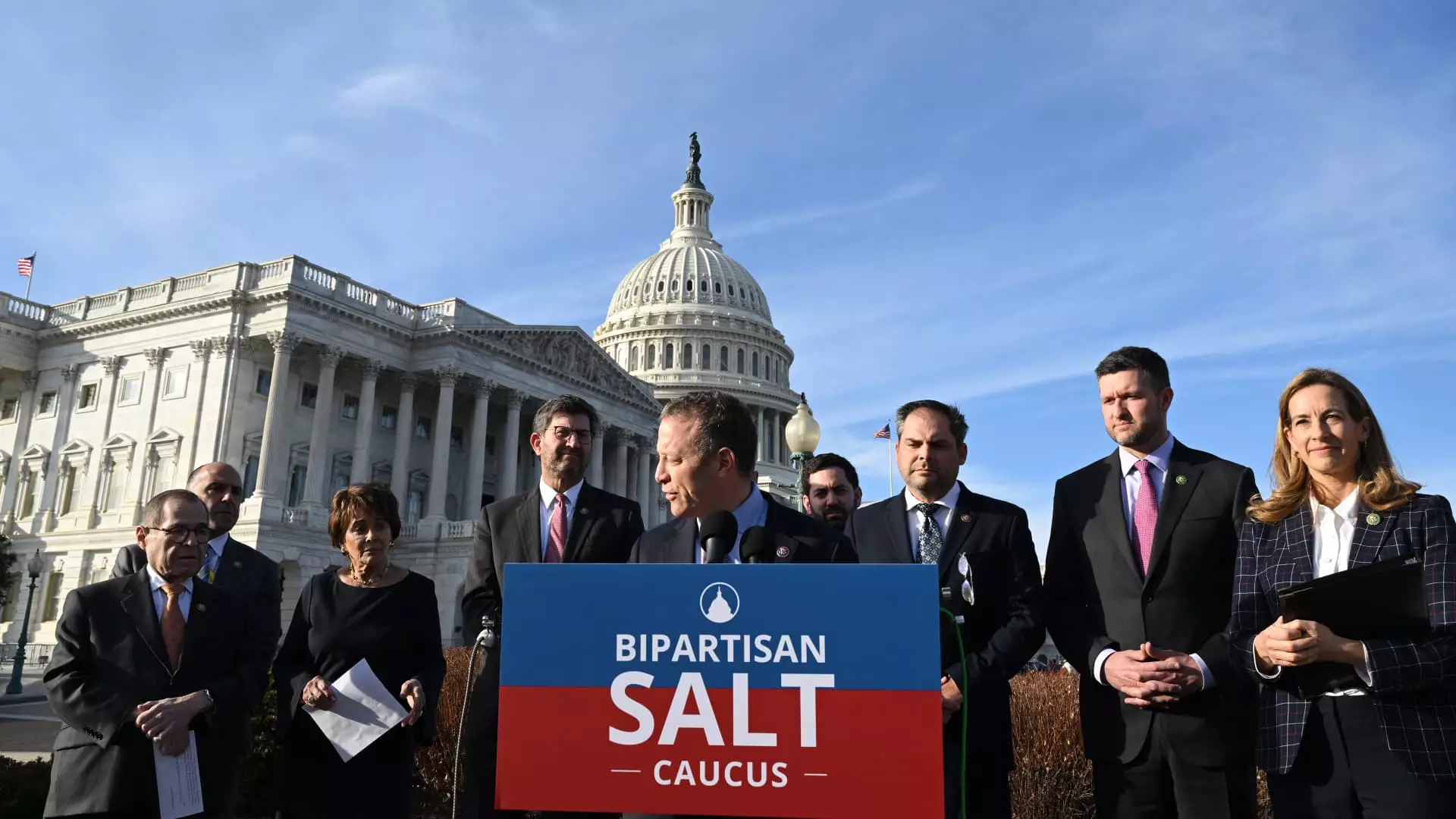As the political landscape heats up surrounding President Donald Trump’s potential second term, the conversation about the Tax Cuts and Jobs Act (TCJA) of 2017 cannot be ignored. At the core of this debate lies a provision that many see as nothing more than a boon for wealthy taxpayers: the $10,000 cap on the State and Local Tax (SALT) deduction. This restriction has been a point of contention, particularly among residents in high-tax states like New Jersey, California, and New York. Expert opinions reveal a prevailing notion that relaxing or repealing this cap could create a significant windfall for affluent Americans, while ordinary taxpayers continue to navigate the complexities of an inequitable tax system.
The SALT cap essentially limits the amount of state and local taxes—ranging from income to property taxes—that taxpayers can deduct from their federal taxable income. Those who do not itemize their deductions often resort to the standard deduction, which for the majority equipped to do so, is currently set at $15,000 for single filers and $30,000 for couples. The irony here is striking: the very individuals advocating to increase or eliminate this cap often occupy the upper echelons of income distribution. Ominously, the data suggest that individuals earning over $200,000 would be the primary beneficiaries if the cap were to be lifted. This clearly raises eyebrows and questions the ethical implications of such legislative moves.
The Illusion of Compromise
While Trump initially championed the SALT cap, he has since backtracked, promising voters he would “get SALT back” should he reclaim the presidency. This shift appears to align with the interests of affluent constituents, perhaps highlighting an unsettling trend in American politics where the needs of high-income voters often supersede those of the broader population. Let’s not forget that the trade-offs involved in budget negotiations are incredibly complex. With a slim Republican majority in the House, it is almost laughable to suggest that substantial reforms can occur without yielding yet another concession to the wealthiest in our society.
Various lawmakers have generated ideas that range from an outright repeal of the SALT cap to merely adjusting its threshold for higher-earning individuals. However, experts frequently cite the improbability of extensive reforms due to the limitations posed by the federal budget. In a time when many citizens grapple with rising living costs, healthcare expenses, and stagnant wages, it is infuriating that the priority appears to remain with appeasing wealthy constituents. There is a stark disconnect between the daily reality of average Americans and the high-level discussions occurring within congressional chambers.
The Socioeconomic Divide
To further complicate the narrative, only about 10% of taxpayers opt for itemized deductions primarily due to how the system is currently structured. With data showing that larger tax returns from itemized deductions lend almost exclusively to the wealthy, it begs the question: is this truly a tax system designed to benefit all citizens, or merely an instrument manipulating economic disparities? Using state and local taxes as a bargaining chip creates a scenario where wealth retains its grip, allowing upper-middle-income families to thrive while those less fortunate continue to face increasing challenges.
Even more revealing is the fact that nearly three-quarters of the benefits from eliminating the SALT cap would flock to households earning upwards of $430,000 annually. This poses a moral quandary for policymakers: should the needs of the affluent dictate fiscal policy while the middle and lower classes continue to struggle? The absence of equitable representation for lower-income citizens in the development of tax legislation is profoundly disconcerting.
The Road Ahead
As discussions around tax reform unfold, it ultimately comes down to the choices made by lawmakers. Will they support policies that promote equality, or will they continue to cater to the wealthiest American interests? The troubling reality is that, if history is any guide, the tendency will lean towards serving those with the greatest economic power. This ongoing dilemma presents a pivotal challenge as we move toward the next election, demanding vigilance from both constituents and advocates for equitable tax policies that genuinely support all citizens, not just a privileged few.
In a democracy that claims to prioritize fairness and opportunity, the SALT cap debate serves as a glaring reminder of the divide growing deeper between the rich and the average American. As discussions evolve, we must remain aware of who stands to gain and who continues to lose, ensuring that our voices amplify the need for a truly inclusive tax policy.


Leave a Reply